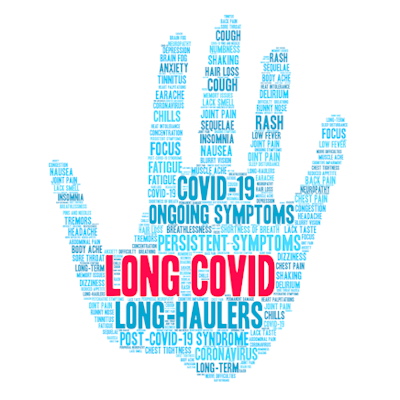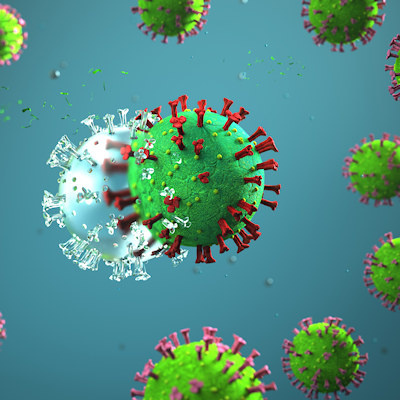June 9, 2023 -- People who took the diabetes drug metformin after being infected with SARS-CoV-2 were less likely to develop long COVID in a randomized clinical trial.
The study was primarily designed to assess whether metformin, ivermectin, or fluvoxamine can prevent serious SARS-CoV-2 infection in non-hospitalized adults. None of the drugs prevented serious infection, as previously reported in the New England Journal of Medicine, but the researchers continued to track the participants to generate data for a secondary endpoint that looked at long COVID.
The team has now published the long COVID data in the Lancet Infectious Diseases. The trial found that, while ivermectin and fluvoxamine were no better than placebo at preventing long COVID, patients who received a two-week course of metformin shortly after contracting SARS-CoV-2 were less likely to suffer long-term complications.
In the metformin part of the study, 1,126 people consented to long-term follow-up and completed at least one survey after the assessment for long COVID at day 180. Half of those patients took metformin and the rest received placebo. By day 300, 8.3% of the participants were diagnosed with long COVID.
The cumulative incidence of long COVID by day 300 was 6.3% in the metformin arm and 10.4% in the placebo cohort. While the 95% confidence intervals overlap, the difference was statistically significant and the beneficial effect of metformin was consistent across prespecified subgroups. The data suggest metformin reduced long-COVID incidence by 41%, with an absolute risk reduction of 4.1%.
In an accompanying Lancet comment piece, Harvard Medical School's Jeremy Samuel Faust, who was not involved in the study, wrote that if the findings are confirmed, they "are profound and potentially landmark."
"To our knowledge, this is the first high-quality evidence from a randomized controlled trial to show that the incidence of long COVID can be reduced by a medical intervention, metformin—an inexpensive treatment with which clinicians have ample experience," Faust wrote.
Faust went on to explain that the mechanism through which metformin may prevent long COVID remains unclear. "Although laboratory findings suggest an antiviral mechanism, it could be that metformin modifies autoimmune cascades triggered by host responses to infection," Faust wrote.
Other outstanding questions include whether the study could lead to treatments for people who already have long COVID, and whether metformin can prevent long-term complications of infections when given to a broader patient population. Participants enrolled in the study had risk factors for severe COVID-19 infections.
Copyright © 2023 scienceboard.net









